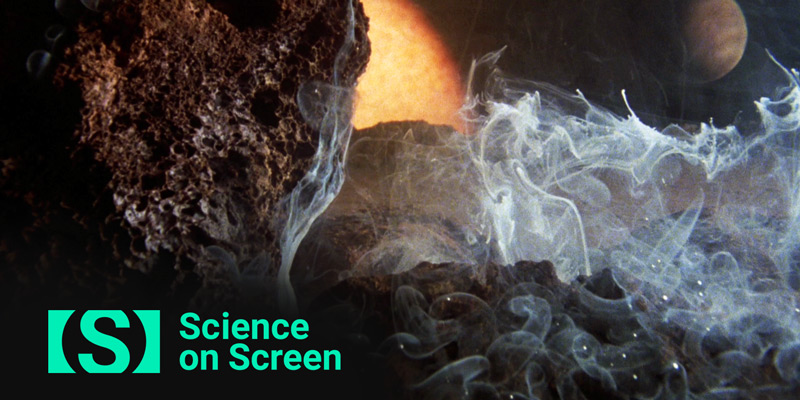March 22, 2021
Contact: Kenny Gerling, gerlingk@missouri.edu
As an associate teaching professor of psychological sciences at the University of Missouri, Ines Segert is used to being in front of a room full of students. But a new event will put her, and two other members of Mizzou’s faculty, up on the big screen.
Beginning March 24, Segert will present on the 1978 remake of Invasion of the Body Snatchers as part of Ragtag Cinema’s Science on Screen®. The event is the first in a monthly series at Ragtag, Columbia’s only arthouse theater, that look at films through a creative, STEM-centered lens with presentations from experts working in those fields. The first three presentations will be pre-recorded and made available through Ragtag and on the Science on Screen website, along with resources from similar events across the country. A fourth, outdoor event is also being planned for this summer.
The concept is familiar to Segert, who said she regularly uses the arts to illustrate thorny scientific questions. “For example: When I teach neuroanatomy, we discuss Capgras delusion, which is when damage in a particular part of the brain leads to an overwhelming belief in people that their loved ones have been replaced by imposters,” she said. “In the film (Invasion of the Body Snatchers), people are getting taken over by aliens, and they never know if others are who they say they are.”
Ted Rogers, cinema programmer for Ragtag, worked with Segert and other faculty members to find sci-fi and future-oriented films that drew on their expertise in unexpected ways. “The emphasis is on very informative, but very accessible presentations,” Rogers said. “This series is for anyone who’s interested in finding educational resources in an unexpected program.”
Blockbuster topics
Once a film was chosen, faculty members recorded a 15-minute introduction that explored their selected topic and provided context. Segert’s presentation, “The Believing Brain: Paranoia & Conspiracy Thinking in an Epidemic Age,” is about the ways conspiratorial thinking can thrive in the uncertainty of a pandemic.
“Here’s this novel threat that is invisible but could be deadly,” Segert said, referencing the parallels between the film’s alien threat and COVID-19. “Those are the conditions you need to be more likely to look for answers and more likely to believe in stories.”
J. Scott Christianson, associate teaching professor of management, will discuss the documentary Coded Bias, which examines how artificial intelligence can perpetuate injustice. Christianson said he hopes to spark conversations about the ethics and ubiquity of different fast-changing technologies.
“It’s fantastic that the arts, whether film or painting, can help us understand the world and break it down into simple terms we can relate to,” Christanson said. “But they can also help us understand what the future could be.”
Libby Cowgill, associate professor of anthropology, is presenting on the dystopian cult classic Gattaca and how it can inform debates about gene modification. Cowgill said that she frequented Ragtag pre-pandemic, and is eager to return (virtually) and share her expertise with others. “Mizzou is a land-grant institution,” Cowgill said. “So we should be bringing the work we do to the public at large.”
 Beyond the classroom
Beyond the classroom
Rogers said that seating in each of Ragtag’s two theaters will be limited to guarantee 6-foot social distances and that masks are required at all times unless actively eating or drinking. Rogers also said that they’ve ensured HVAC and filtration systems meet mitigation standards.
“This is our first community engagement series involving guests since the pandemic,” said Rogers. “But the lectures will also be available virtually, so if you’re not in a place to come to Ragtag Cinema, you can see them there.”
Science on Screen isn’t the only time Mizzou and Ragtag have teamed up for community events. Extra Credit, which is on temporary hiatus, invites MU researchers to Ragtag for one-time lectures on popular films. The Missouri School of Journalism also is a sponsor of Ragtag Film Society’s annual True/False Film Festival.
Segert is the first presenter in the inaugural season of Science on Screen, and she’s optimistic the event can be a bridge from campus to Columbia. “I hope people are motivated to find out more, take classes or do research on their own,” Segert said. “Many people have no idea what professors do… and it’s important they can see how research applies to everyday life.”
Series kickoff
Science on Screen will begin with Invasion of the Body Snatchers on at 7 p.m. Wednesday, March 24, and an encore showing at 8:30 p.m. Thursday, March 25. Tickets are available from the Ragtag box office and online. Additional information is available on Ragtag’s website.
Science on Screen is an initiative of the Coolidge Corner Theatre, with major support from the Alfred P. Sloan Foundation.




